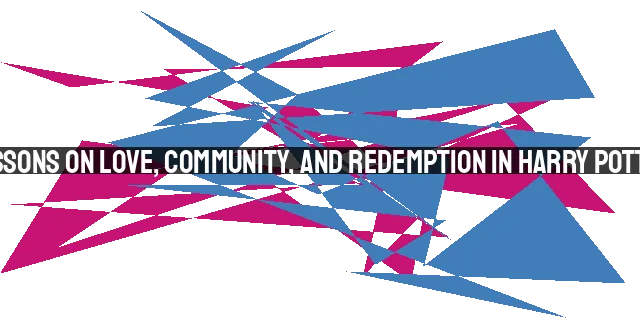"The Doxology: The Simple Hymn of Praise That Endures for Over 300
The Power of Simple Lyrics: The Story of "The Doxology"
Have you ever wondered about the origins of the hymns you sing in church? Some of them have been passed down for centuries and are still sung today. One of the most famous of these hymns is "The Doxology." Its simple lyrics have been passed down for over 300 years and are still sung by millions of Christians around the world. In this article, we will explore the history and power of "The Doxology" and how its message still resonates with Christians today.
The History of "The Doxology"
"The Doxology" is a short hymn of praise that is typically sung at the end of a church service. Its origins can be traced back to the late 17th century when it was first published in England in a hymnal called "The Whole Book of Psalms." The lyrics were written by an Anglican clergyman named Thomas Ken, who was the Bishop of Bath and Wells.
Thomas Ken was known for his strong faith and devotion to God. He was also a prolific writer and wrote many books and hymns during his lifetime. "The Doxology" was one of his most famous compositions and was originally written as a three-verse hymn. However, only the final verse is typically sung today.
The hymn was originally written to be sung to a tune known as "Old 100th," which is a traditional melody that has been used for many hymns over the centuries. The melody is simple and memorable, which has helped to make "The Doxology" one of the most well-known hymns in history.
The Meaning of "The Doxology"
The lyrics of "The Doxology" are simple but powerful. They express praise and gratitude to God for his blessings and mercy. The hymn begins with the words, "Praise God from whom all blessings flow," which sets the tone for the rest of the song.
The second line of the hymn, "Praise him all creatures here below," reminds us that all of God's creation is called to praise him. This includes not only humans but also animals and all living things. The Bible tells us in Psalm 148:7-10:
Praise the Lord from the earth,
you great sea creatures and all ocean depths,
lightning and hail, snow and clouds,
stormy winds that do his bidding,
you mountains and all hills,
fruit trees and all cedars,
wild animals and all cattle,
small creatures and flying birds,
kings of the earth and all nations,
you princes and all rulers on earth,
young men and women,
old men and children.
This passage reminds us that all of God's creation is called to praise him, from the smallest insect to the mightiest king. "The Doxology" echoes this sentiment and reminds us that all creatures have a role to play in giving praise to God.
The third line of the hymn, "Praise him above, ye heav'nly host," reminds us that even the angels in heaven are called to give praise to God. The Bible tells us in Psalm 103:20-21:
Praise the Lord, you his angels,
you mighty ones who do his bidding,
who obey his word.
Praise the Lord, all his heavenly hosts,
you his servants who do his will.
This passage reminds us that the angels in heaven are constantly giving praise to God. "The Doxology" encourages us to join in this chorus of praise and to give thanks to God for his goodness and mercy.
The final line of the hymn, "Praise Father, Son, and Holy Ghost," reminds us of the Holy Trinity. This is a central doctrine of the Christian faith, which teaches that God exists as three persons: the Father, the Son (Jesus Christ), and the Holy Spirit. Each person of the Trinity is fully God, and yet there is only one God. "The Doxology" reminds us of this important truth and encourages us to give praise to each person of the Trinity.
The Enduring Power of "The Doxology"
Despite its simplicity, "The Doxology" has endured for over 300 years and is still sung by millions of Christians around the world. Its message of praise and gratitude to God is timeless and universal, and it continues to resonate with Christians of all ages and backgrounds.
One reason for the enduring popularity of "The Doxology" is its simplicity. The lyrics are easy to remember, and the melody is simple and memorable. This makes it an ideal hymn to sing at the end of a church service, as it allows everyone to join in and give praise to God together.
Another reason for the enduring power of "The Doxology" is its message of gratitude. In a world that is often focused on material possessions and success, "The Doxology" reminds us of the importance of giving thanks to God for his blessings. It encourages us to have an attitude of gratitude and to remember all that God has done for us.
Finally, "The Doxology" reminds us of the importance of praise. The Bible tells us in Psalm 22:3 that God inhabits the praises of his people. When we give praise to God, we invite his presence into our lives and into our worship. "The Doxology" encourages us to give praise to God in all things and to make worship a central part of our lives.
Conclusion
"The Doxology" is a simple hymn of praise that has endured for over 300 years. Its message of gratitude and praise to God is timeless and universal, and it continues to resonate with Christians around the world. As we sing this hymn, we are reminded of the importance of giving thanks to God for his blessings and of the power of praise to invite God's presence into our lives. Let us continue to sing "The Doxology" with joy and gratitude, and let us remember all that God has done for us.



POST COMMENT
For post a new comment. You need to login first. Login
COMMENTS(0)
No Comment yet. Be the first :)